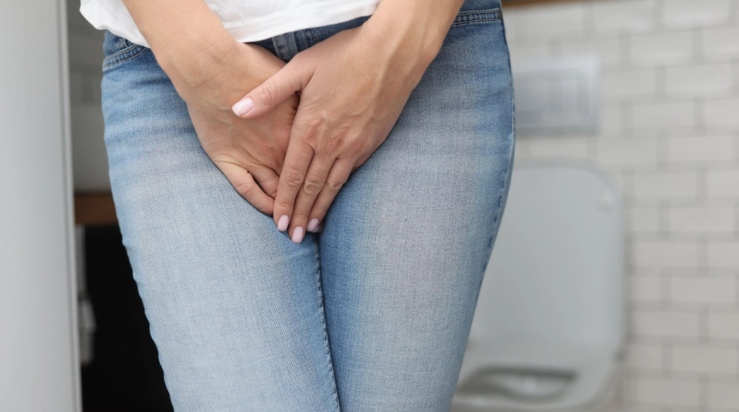Seven Reasons for Frequent Urination and How to Address Them.
Others are reading now
What if the need to urinate often is a constant problem? Dr. Babak Ashrafi from Superdrug Online Doctor has shed light on the possible causes.
Most people, especially as they get older, have at some point needed to urinate more than usual. While there is usually a simple explanation, such as having drunk too much fluid, some people may have noticed the annoying feeling more frequently than normal.
What if the need to urinate a lot is a constant problem? Should you just accept it, perhaps consider it an inevitable part of aging, or should you get it checked by a doctor?
“Concerns about increased frequency of urination are something that is often expressed by patients and can be worrying,” says Dr. Babak Ashrafi from Superdrug Online Doctor according to Pensionist. “It is important to know that an increase in the need to urinate can indicate a range of problems, so it is wise to seek advice from a health professional.”
Also read
So what can the causes be?
Diabetes
Ashrafi says: “Diabetes can cause increased urination due to elevated blood sugar levels. The kidneys work to eliminate excess sugar through the urine, leading to increased thirst.” According to Diabetes UK, the urge to drink more fluid is because the body can dehydrate as a result of this process. So if you suddenly urinate more and are also very thirsty, it is a good idea to get your blood sugar levels checked. Other signs of diabetes, adds Ashrafi, may include “unexpected weight loss and fatigue.”
Infections
Infections such as cystitis irritate the bladder and urethra, causing a frequent and urgent need to urinate, explains Ashrafi. He says that additional signs of cystitis include pain or a burning sensation during urination and cloudy or strongly smelling urine. Mild, short urinary tract infections can sometimes go away on their own, especially if you stay well hydrated. But see a doctor if it’s the first time you experience these symptoms, they worsen or do not disappear after a few days, or if you notice an increase in pain and other worrying symptoms, such as fever or general discomfort. Anyone who notices blood in their urine should see their doctor.
Enlarged Prostate
Benign enlargement of the prostate (BPE) is very common in men over 50 – although it occasionally can affect younger men too – and Prostate Cancer UK (PCUK) emphasizes that it is not caused by cancer and does not increase the risk of getting the disease. It basically means that the prostate – a small walnut-sized gland located between a man’s bladder and rectum – has become larger, which can make men feel that they need to urinate more – especially at night. PCUK says that about a third of men over 50 have urinary symptoms, and the most common cause is BPE. “Enlarged prostate can block the urethra and cause difficulties in starting or stopping urination and result in a weak urine stream, which then contributes to an increase in the frequency of urination,” explains Ashrafi. The good news is that BPE can be managed – you don’t just have to accept it. So seek advice from your doctor. They can also assess whether further tests should be performed.
Menopause
Many women going through menopause report needing to urinate more urgently, and the NHS reports that about 70% of women say their urinary incontinence began after their last period. This is associated with a depletion of estrogen in the urinary tract and vagina. Ashrafi says: “Menopause causes hormonal changes that can affect the urinary system. Vaginal dryness, hot flashes, and mood swings can be accompanied by an increased frequency of urination.”
Gynecological Problems
“Gynecological problems can be accompanied by the need to urinate more,” says Ashrafi, adding: “Another cause of increased urination in women can be gynecological problems such as pelvic pain, abnormal bleeding, and discomfort during intercourse. These can lead to changes in bladder function and result in an increased urge to urinate.” Keep track of your symptoms and consult your doctor. You may need further tests to rule out any underlying causes as well as advice on managing symptoms.
Pelvic Floor Problems
Weak or damaged muscles in the pelvic floor, which are the muscles that stretch from the bottom of the pelvis, in both men and women can lead to increased urination. Ashrafi explains: “Pelvic floor problems, such as weakness or dysfunction, can lead to incontinence and difficulties in controlling bowel movements. These problems can contribute to an increase in the frequency of urination.” For women, this can be associated with childbirth, age, and hormonal changes. But anyone can potentially be affected – it can also follow after an injury or other health problems, for example. The good news is that there are simple pelvic floor exercises that have been proven to help. Talk to your doctor or physiotherapist for advice.
Aging
Ashrafi says: “Aging can lead to gradual changes in bladder function, resulting in reduced bladder expansion and weakened pelvic muscles, which can then contribute to a higher frequency of urination.”


